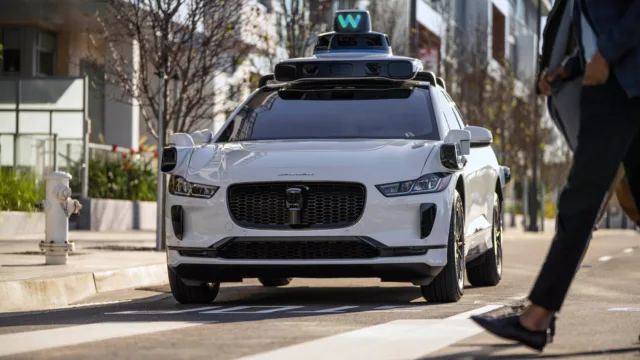
Chinese autonomous vehicle companies, including Baidu’s Apollo Go, WeRide, and Pony AI, are expanding robotaxi services overseas, challenging US leaders like Waymo, Tesla, and Zoox. They are rolling out operations in Dubai, Abu Dhabi, and Singapore, and plan to enter Germany, the UK, and other European markets in the coming years. This surge is backed by Beijing, which has identified autonomous driving as a strategic industry and is providing government support and funding to secure global leadership by 2035.
Notably, this expansion aims to leverage China’s low-cost components, skilled talent pool, and favourable international partnerships, while demonstrating their commercial viability on global roads.
Beijing’s backing gives China the edge
The rise of Chinese autonomous vehicle (AV) companies is no accident. As with electric vehicles, state support has been crucial. The government briefly froze robotaxi approvals in 2024 after protests from human drivers, but permits have now resumed, signalling Beijing’s determination to dominate the sector despite social pushback.
“In the US, it is been more market-driven. In China, most of them are government-driven,” said Weisong Shi, professor at the University of Delaware. “Technology-wise, it is very difficult to say who is ahead or behind, but none are good enough to deal with extreme conditions like heavy snow.”
Waymo leads in the US, but Chinese firms gain ground
In the United States, Waymo remains the front-runner, operating fully driverless cars in five cities and testing in at least ten more. Even it has faced challenges, a recent probe was launched after a Waymo vehicle allegedly failed to stop for a school bus in Atlanta.
Tesla and Zoox continue limited trials, whereas Chinese companies are already running commercial services. WeRide operates in Guangzhou, Baidu in Wuhan, and Pony AI in Guangzhou, Shenzhen, Beijing, and Shanghai. Pony AI plans to expand its fleet to 1,000 vehicles by year-end, partnering with authorities in Dubai and Qatar.
“Our American peers started earlier, but we are catching up really fast,” said James Peng, Pony AI’s CEO.
How cheaper tech and talent fuel expansion
Chinese firms benefit from lower production costs and access to top talent. Baidu’s Apollo RT6, priced at 204,600 yuan ($28,800), offers voice controls, reclining massaging seats, and nearly 40 sensors, making it a cost-effective option for global operators.
In contrast, Tesla’s Cybercab prototype, projected under $30,000, has yet to reach production, while the Cybertruck sells for nearly double its initial promise.
“The US companies are not as aggressive because their per-vehicle costs are higher,” said Ming Hsun Lee, Bank of America’s head of Greater China auto and industrials.
Middle East becomes global testbed
The Middle East is emerging as a prime testing ground. With sunny weather, modern infrastructure, and supportive governments, cities like Dubai and Abu Dhabi are ideal for early deployment. Dubai aims for 25 per cent of trips to be autonomous by 2030, and Abu Dhabi targets 2040.
After GM-backed Cruise exited the region, Chinese firms quickly filled the gap. By September, vehicles from Baidu, WeRide, and Pony AI were testing on Dubai streets, while Uber riders in Abu Dhabi can already hail WeRide minivans with safety drivers.
Global partnerships and local ambitions
Partnerships help Chinese firms scale. Uber has joined WeRide in Abu Dhabi, and Lyft is collaborating with Baidu for a European rollout next year. Gulf investors are supporting the industry: Mubadala co-led a $2.3 billion investment in Waymo, and Saudi Arabia’s Neom invested $100 million in Pony AI. Dubai also awarded $900,000 to WeRide for winning the 2025 World Challenge for Self-Driving.
“A springboard for global growth”
For WeRide, the Middle East is a launchpad. “We are really looking forward to having a few hundred robotaxis here very soon,” said Jennifer Li, CFO. “Once our fleet scales, we aim to become profitable on a per-vehicle basis. It’s very exciting.”
(With inputs from Bloomberg)









